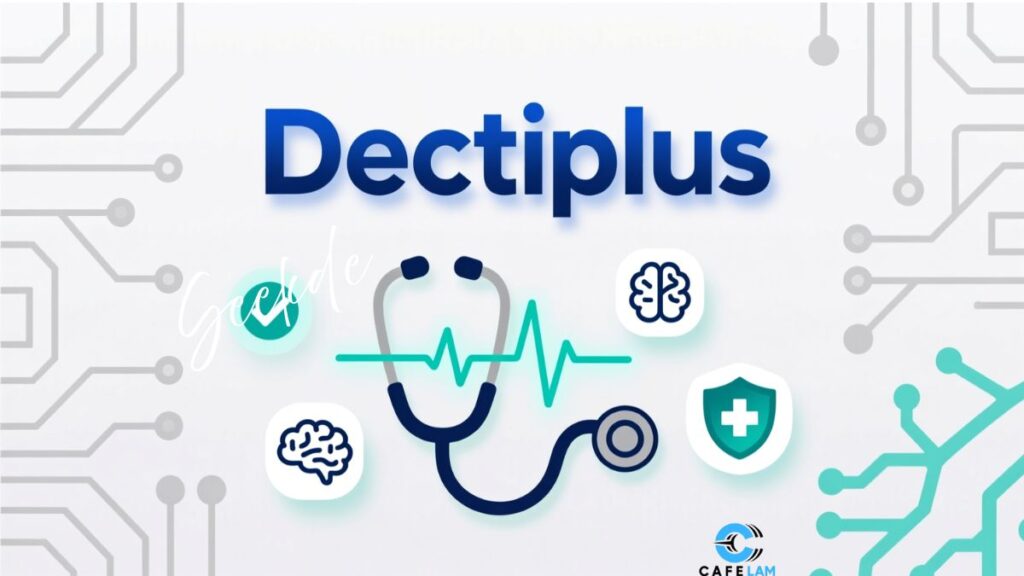In recent years, telehealth platforms have transformed how patients receive medical care, and Doctiplus is one of those innovators changing the game. Doctiplus is an online healthcare service that connects patients with verified, licensed doctors via video consultations, chats, or in-person appointments when available.
It offers tools like electronic medical history, prescription delivery, scheduling convenience, and secure payment methods. As telemedicine grows in importance—especially in remote locations or times of restricted mobility—understanding how Doctiplus works, its benefits, and potential pitfalls is essential for both patients and healthcare providers.
Benefits of Doctiplus
Using Doctiplus provides a range of advantages, especially in terms of accessibility, efficiency, and quality of care. Here are some key benefits:
1. Increased Access to Healthcare
- 24/7 Doctor Availability: Doctiplus connects you with doctors around the clock, including nights, weekends, or holidays. You don’t have to wait for clinic hours.
- Remote Consultations (Telemedicine): Through video calls or chat, medical advice is available even in rural or underserved regions. This reduces travel burden.
2. Convenience and Time-savings
- Easy Scheduling & Calendar Tools: Patients can choose date/time for appointments; doctors manage availability with tools providing daily/weekly/monthly views.
- Medical History Management: Doctiplus stores patient histories, records consultations, prescriptions, and other vital data online. This helps continuity of care.
3. Cost Transparency & Flexibility
- Free Sign-up: Patients can register without charge.
- Flexible Payment: Services can be paid via PayPal; pricing is visible ahead; doctors set fees, commissions are disclosed.
4. Secure & Verified Provider Network
- Licensed, Certified Doctors: Profiles are vetted; specialties are shown; doctor credentials are verified.
- Patient Reviews and Ratings: Users can see reviews or ratings of health specialists. This helps build trust in a telehealth environment.
How to Use Doctiplus Effectively
To get the most out of Doctiplus—whether you’re a patient or a healthcare provider—there are steps, best practices, and features you should be aware of.
For Patients
- Register & Verify Your Account
- Create your user profile with accurate personal info.
- In many cases, you may need to verify identity or location.
- Search for a Doctor
- Use the advanced search by specialty, location, or ratings.
- Filter by fees, mode of consultation (video vs in person vs chat).
- Schedule Appointment
- Choose date/time; check availability.
- Confirm whether consultation is virtual or in-person.
- Pay if required (some services are free; others have fees).
- Attend Consult & Follow Up
- Use video or chat interface when attending virtual appointments.
- Ask for prescriptions, medical advice, referrals.
- Review and track your medical history on the platform.
For Doctors / Health Providers
- Complete Your Profile
- Specialty, certifications, experience, clinic location (if applicable).
- Upload images if you have a physical clinic to boost visibility.
- Set Schedules & Fees
- Define your availability – for in-person, video, or chat consultations.
- Set fee structure and clearly mention whether PayPal or other payment options are supported.
- Engage with Patients
- Maintain prompt responses to chats or messages.
- Deliver electronic prescriptions and ensure follow-up when needed.
- Use Analytics & Feedback
- Monitor appointment history, patient ratings, and profile visits.
- Learn from feedback and adjust practices for better service.
Common Mistakes to Avoid
Even with a good platform like Doctiplus, users (both patients and doctors) can make mistakes that reduce the quality of the experience. Here are pitfalls and how to avoid them.
- Poor Profile Information
- If a doctor’s profile lacks necessary credentials, clear specialty descriptions, or clinic photos, patients may distrust or skip it.
- Patients without accurate health history or contact details may lead to miscommunication.
- Ignoring Time Zones or Scheduling Errors
- Virtual or video consultations may cross time zones; confirming time clearly is essential.
- Double-booking or failing to update availability can frustrate patients.
- Overlooking Privacy & Data Security
- Sharing sensitive health data insecurely, or not using secure networks, can breach confidentiality.
- Neglecting to read terms and conditions regarding data retention or deletion.
- Misusing Payment & Fees
- Not understanding platform commissions (for doctors) or how refunds work (for patients).
- Hidden fees or extra charges may cause surprise if not disclosed.
- Failure to Follow Up
- After a consultation, patients might not revisit their history, ignore prescription instructions.
- Doctors might not document the medical history or follow up, which lowers continuity of care.
Expert Tips and Advice
Here are some recommendations—drawn from experts and user experience—to help you maximize the value of Doctiplus, improve telehealth outcomes, and ensure satisfaction.
- Prepare Before Virtual Consults: Before your appointment, prepare a list of symptoms, medicines you are using, recent reports or lab results (if you have them). This speeds up diagnosis and helps the doctor better understand your case.
- Ensure Good Internet & Quiet Environment: For video calls, use a stable internet connection; find a quiet, well-lit place. This improves communication and allows visual cues.
- Use Prescriptions & Records Channels Fully: Always request electronic prescriptions; keep copies. Use the medical history section, so future doctors see full background.
- Review Doctor Ratings and Reviews Carefully: Ratings can tell you about demeanor, punctuality, thoroughness—all important aspects beyond just credentials.
- Leverage Feedback Loops: If you are a doctor, solicit feedback from patients; if you are a patient, leave reviews. This helps improve service quality and visibility.
- Stay Updated with Platform Policies: Doctiplus may update commission rates, payment methods, or privacy policies. Keeping abreast ensures no unpleasant surprises.
- Guard Your Data: Use strong passwords, two-factor authentication if available; do not share sensitive data unless required. Know how to delete your account if you wish.
Conclusion
Doctiplus represents a strong model for modern telemedicine—bringing healthcare access, flexibility, and transparency closer to patients and doctors alike. Its strengths lie in verified professional networks, transparent fee systems, multi-modal communication (video / chat / in person), and solid tools for history, prescriptions, and scheduling.
By avoiding typical pitfalls—such as inadequate profile information, privacy lapses, or poor preparation—you can ensure a smoother, safer experience. Whether you are seeking medical advice from home, supporting chronic conditions, or building your practice, using Doctiplus with awareness and good practices can make all the difference.
FAQs
1. Is Doctiplus free or do I always have to pay?
Doctiplus allows free registration for patients. Some services or messages may be free (for example, a free message to a doctor every 7 days). However, for consultations—especially video or in-person—you’ll typically pay a fee. The pricing is set by doctors and should be clearly listed.
2. How does Doctiplus verify the credentials of its doctors?
Doctors are required to submit proof of their medical certifications, specify their specialties, and often upload identity documents or licenses. The platform reviews and approves these before marking profiles as verified. Patient reviews and ratings also help maintain accountability.
3. Can I use Doctiplus if I’m in a remote area with poor internet?
Yes—though quality of service depends on your connectivity. Video consultations require a stable internet connection; if that’s not possible, chat or phone consultations may be more feasible. Some services or features might not be fully accessible. It’s always good to test your connection before booking a video call.
4. How are medical records and prescription handled?
Doctiplus stores medical history and past appointments. Doctors can issue electronic prescriptions, which may be delivered via the platform. Records are typically available to patients to view, download, or share. This digital storage helps maintain continuity in care.
5. What happens if the doctor cancels or misses the appointment?
Policies vary by region and doctor, but typically Doctiplus supports refund processes or rescheduling. When booking, check cancellation or no-show policies. If a video consultation or in-person meeting can’t happen, patients should reach out through support. The platform generally has mechanisms for handling such issues.







